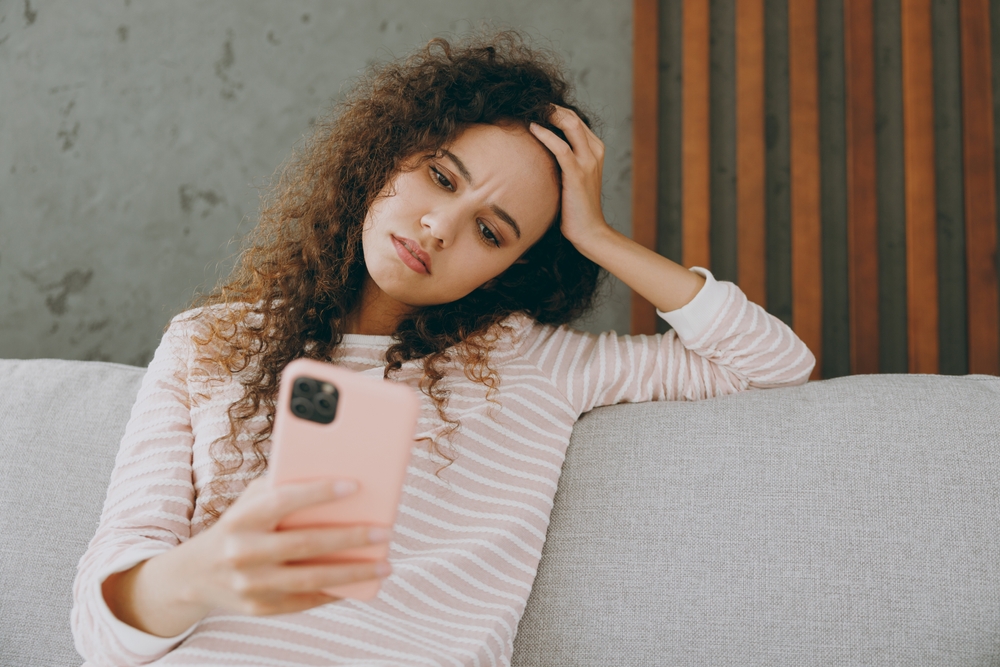Online dating apps have revolutionized how people connect, offering unprecedented convenience and access to potential partners. While these platforms promise love and companionship, their design and usage patterns can significantly impact mental health. Understanding these effects helps users navigate digital dating while protecting their emotional well-being.
The rise of dating apps has transformed traditional courtship into a more immediate, often superficial experience. This shift brings both opportunities and challenges, particularly regarding psychological health and emotional stability.
1. Self-esteem and validation
Dating apps often reduce complex human connections to split-second judgments based primarily on appearances. This superficial assessment process can profoundly impact users’ self-worth and confidence. When matches become infrequent or conversations go unanswered, many users internalize these experiences as personal rejections.
The constant seeking of external validation through matches and messages creates an unhealthy cycle. Users may begin measuring their worth through digital interactions, leading to diminished self-esteem when expectations go unmet. This validation-seeking behavior can become particularly problematic for individuals already struggling with self-image issues.
Many users report feeling increasingly insecure about their appearance, personality, and social skills after extended app usage. The pressure to present an idealized version of oneself while facing potential rejection contributes to growing self-doubt and negative self-perception.
2. Anxiety and social stress
The uncertainty inherent in online dating generates significant anxiety for many users. From crafting the perfect profile to interpreting ambiguous messages, each step of the process can trigger stress responses. This anxiety often extends beyond the digital realm, affecting users’ overall social confidence.
Message anticipation creates its own form of stress, with many users constantly checking their phones for responses. This hypervigilance can interfere with daily activities and sleep patterns, further exacerbating anxiety symptoms. The fear of missing potential connections keeps users tethered to their devices, creating an unhealthy attachment to the platforms.
Decision fatigue also contributes to increasing anxiety levels. The seemingly endless choices available through dating apps can overwhelm users, making it difficult to commit to meaningful connections. This paradox of choice often leads to second-guessing and persistent worry about missed opportunities.
3. Isolation and disconnection
Despite promising increased connection, dating apps often intensify feelings of loneliness. The superficial nature of many digital interactions fails to satisfy deeper needs for meaningful human connection. Users may maintain numerous conversations while feeling increasingly isolated from genuine relationship opportunities.
The phenomenon of ghosting—suddenly ceasing communication without explanation—compounds feelings of disconnection. This common practice in online dating can leave users feeling disposable and uncertain about their social skills or worthiness of connection.
The virtual nature of initial interactions can create a false sense of intimacy while actually preventing deeper emotional connections. Users may spend hours engaging in surface-level conversations that never progress to meaningful relationships, reinforcing feelings of isolation.
4. Addictive behaviors
Dating apps employ many of the same psychological triggers as social media and gaming platforms. The intermittent reinforcement of matches and messages can create addictive usage patterns, leading users to spend excessive time seeking digital validation.
This addictive cycle often results in emotional burnout. Users may feel compelled to continue swiping and messaging even when the activity no longer brings joy or satisfaction. The pressure to maintain multiple conversations while constantly seeking new matches can become emotionally exhausting.
The gamification of dating through these apps can blur the line between genuine connection-seeking and compulsive behavior. Users may find themselves prioritizing quantity over quality in their interactions, further diminishing the likelihood of meaningful connections.
5. Depression and disappointment
Repeated disappointments and unmet expectations in online dating can contribute to depressive symptoms. The gap between idealized romantic possibilities and reality often leads to disillusionment and hopelessness about finding genuine connection.
The constant exposure to seemingly perfect lives and relationships through carefully curated profiles can trigger feelings of inadequacy. Users may struggle with comparing their dating experiences to an unrealistic standard, leading to decreased mood and self-worth.
Failed connections and repeated rejection can accumulate over time, creating a negative narrative about one’s ability to find love. This pattern may reinforce existing depressive tendencies or trigger new episodes of depression.
Protecting mental health
Maintaining psychological well-being while using dating apps requires conscious effort and boundaries. Setting realistic expectations about the role these platforms play in meeting potential partners helps users approach digital dating more healthily.
Creating time limits for app usage and taking regular breaks can help prevent emotional exhaustion. Users benefit from maintaining diverse social connections and activities outside of dating apps, ensuring their self-worth isn’t solely tied to digital dating success.
Moving forward
While online dating apps offer valuable opportunities for connection, users must prioritize their mental health throughout the process. Recognizing early signs of psychological distress and implementing protective strategies helps maintain emotional balance while navigating the digital dating landscape.
Professional support through therapy or counseling can provide valuable tools for managing app-related stress and anxiety. Building a strong foundation of self-worth independent of dating success creates resilience against the psychological challenges these platforms may present.
This story was created using AI technology.















